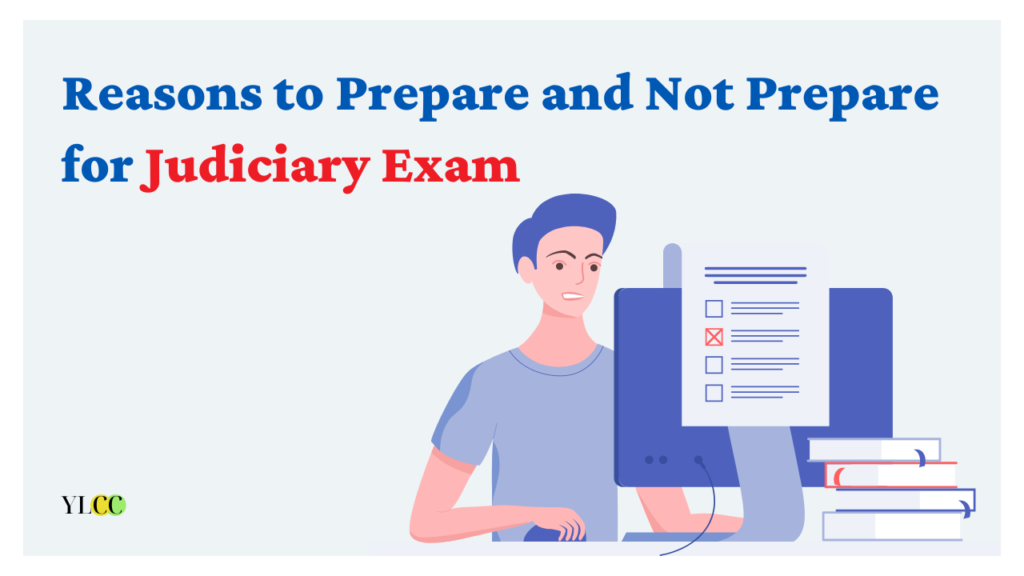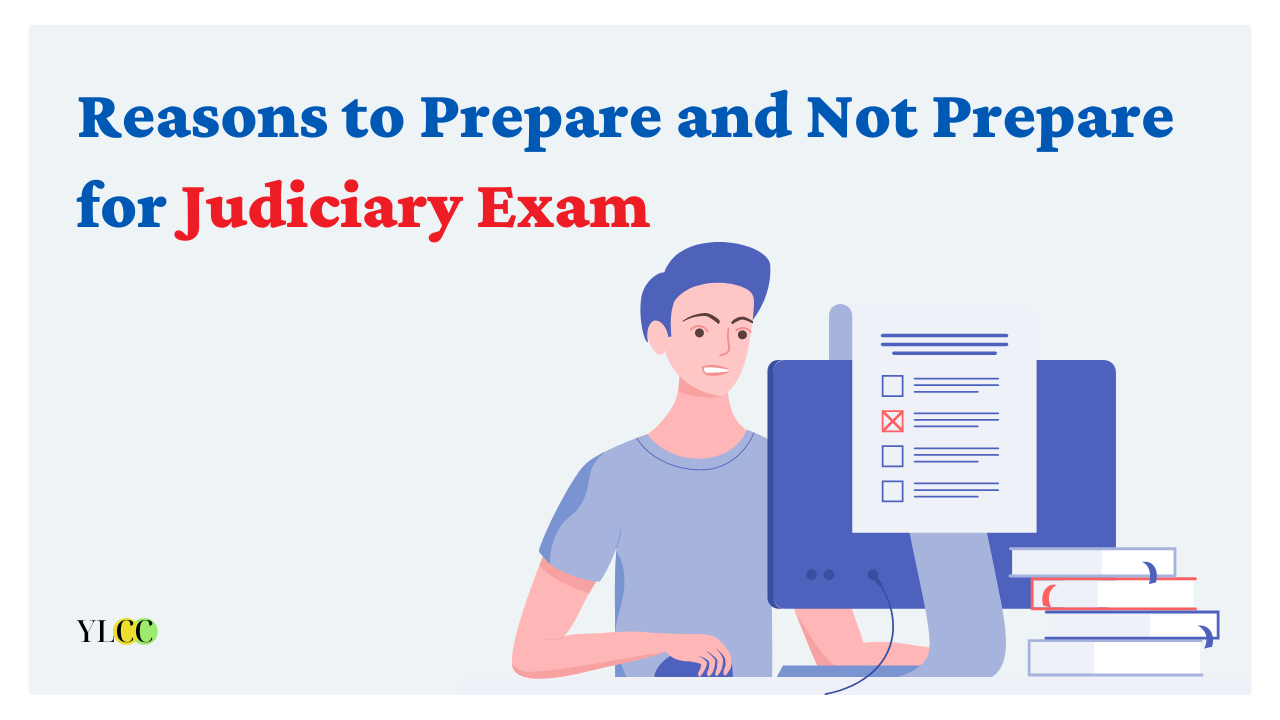
So you’ve decided on the path of becoming a judge, eh? Or are you confused?
You are intrigued, on the one hand, by the status and power that it would confer, and because you believe yourself a problem solver who can have a positive impact if they were given more authority!
On the other hand, it takes a lot of work, sleepless nights in front of textbooks, trying to cram for that test while facing ruthless competition and it doesn’t end there. Even if you succeed in this endeavor, you still face the question of whether or not you are equipped to safely traverse the legal system as a whole.
Just like any other career path, being a judge comes with its share of perks and drawbacks. Becoming one has many benefits, but you have to work hard and make some sacrifices to get there.
Hopefully, we haven’t frightened you enough to say:
…and for the courageous souls who are still with us, we have some good news!
We have a lot to say about the judiciary exam, so after reading this post, you’ll know whether or not it’s for you.
Reasons To Prepare For a Judiciary Exam:
- Sense of accomplishment: Judiciary and UPSC are the toughest exams in India. Passing the competitive exam and being appointed as a judge becomes a source of pride and satisfaction.
- Standard of living: A government job means a good standard of living- a dream for many. Judiciary as a profession might not offer very high salary packages in comparison to some private law firm jobs but it comes with its unique package of perks like accommodation facilities etc; which eventually makes it worth a satisfying profession.
- Public service: Judiciary is one of the key pillars of democracy. Judges play a crucial role in the justice system of our country and can make a positive impact on society.
- Career advancement: Becoming a judge is a highly respected and high-paying profession. Further, preparing for judiciary exams can open up opportunities for career advancement and can lead to a successful and rewarding career in the legal field.
- Professional recognition: Passing the judiciary exams can be a great way to gain professional recognition and respect in the legal community as well as in society in general.
- Financial stability: A career in the judiciary can provide financial stability and a good income which is not often guaranteed in the field of litigation; thus, it is an excellent choice for those who are interested in pursuing a profession that is both secure and stable.
- Sense of purpose: Being a judge or a judicial officer can be a highly rewarding and fulfilling career that offers a sense of purpose and the opportunity to make a real difference in people’s lives.
- Opportunities to learn: Preparing for judiciary exams can be a great way to gain a deep understanding of the legal system, and can help you stay up-to-date with the latest legal developments and trends.
- Personal growth: Preparing for and taking the judiciary exams can be a challenging and demanding process that can help you grow as a person, both professionally and personally.
- Networking opportunities: As you prepare for and take the judiciary exams, you will likely meet many other professionals and experts in the field, which can open up opportunities for networking and building valuable professional relationships.
- Legal expertise: Being a judge or judicial officer requires a deep understanding of the legal system and the ability to interpret and apply the law in a fair and impartial manner. Preparing for judiciary exams can help you develop these skills and become an expert in the legal field.
Reasons Not To Prepare For A Judiciary Exam:
- High competition: It is possible that there are a large number of people interested in working in the judiciary, making it challenging to secure a rank.
- Time and effort: Getting ready for a competitive exam like Judiciary might require a large investment of both time and effort. Some people put their entire careers on hold for years for the same. While it does provide a solid grounding in legal concepts, an individual who puts their concentration only on academics will be lacking the practical experience that is vital to a successful legal profession.
- Lack of motivation: It is a harsh truth, but most people pursue judiciary because their parents, grandparents, aunts and uncles, cousins, teachers, friends, friends of friends want them to. They take the exam for external validation rather than any internal drive.
- Risk of disappointment: One potential downside is that failure to pass the judiciary exam might be disheartening and make one think twice about a future in law.
- The lack of awareness of the benefits and opportunities that a career in the judiciary can provide: Unfortunately, the majority of individuals aren’t aware that a career in the judiciary might open a lot of doors for them; as a result, their desire to study for the test is negatively impacted.
Conclusion
For those who finish with a legal degree, working in the judicial system is a viable alternative. Not only does it allow you to stay close to the legal system for the rest of your career, but it also gives you the satisfaction of knowing that you are helping to make the world a better place. With that said, a judicial exam is no walk in the park. So, for everyone’s sake, go for taking the judiciary exam only if ‘YOU’ want it. That’s right…YOU! Not your parents or relatives or relatives of your relatives. You need to want it. If by any chance, you have this going in your head,
Drop it. There is no point in wasting yours and everyone’s time. You need to have a strong sense of commitment to succeed if you wish to take the examination to become a judge. There will be a comprehensive written examination as well as an equally challenging interview. If you put some effort into planning and strategy, you will be able to achieve your objective and go from the bar to the bench soon my friend!
YLCC would like to thank Pearl Narang for her input on this article.






